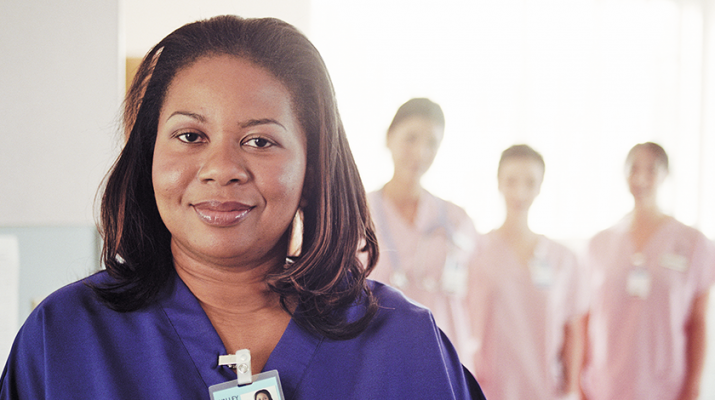By Deborah Jeanne Sergeant
Nursing is field brimming with opportunities and challenges. Though to many outside, it may seem more of the latter, many of those called to nursing find it personally rewarding.
Elizabeth Sheen, a registered nurse with further certification in holistic nursing, works for UR Medicine Home Care. She felt drawn to the industry to serve other people and felt nursing was the best way she could give back. She began nursing in 2005.
She said that the biggest change since then has been the change in how medical providers deliver services.
“It’s getting away from the art of nursing and it becomes more task-oriented because of the documentation and the different requirements,” Sheen said. “As nurses, we need to make a more concerted effort to be with the patient.”
Prioritizing presents her biggest day-to-day challenge. Unlike in hospital settings, she treats patients in their homes. She must also complete paperwork and assessments like other nurses.
On tough days, she contemplates knowing that she makes a difference in her patients’ lives.
“That makes it all worth it,” Sheen said.
Heide Parreno is a nurse practitioner who has worked in private practice since for about 50 years. She emigrated from the Philippines in the 1970s to obtain more education. Eventually, Parreno earned her nursing degree and received further training in holistic nursing.
Parreno said that she must advocate for patients on a daily basis and had to “deal with insurance companies” to obtain coverage for them.” Operating her own practice has enabled her to treat patients holistically. She copes with the stressors of her profession by “keeping myself in balance and harmony, with others and with nature,” she said.
Echoing Sheen’s sentiments, Parreno said that she enjoys nursing because of the positive difference she can make in people’s lives.
“I can help people obtain the good health that they want,” she added. “The way I define health is the ability to function in a manner acceptable to yourself and the community of which you are a part. That means that you have the right relationship with yourself, God and nature and the people you’re with. It’s not just the absence of disease.”
Nursing at a Glance
• “Nursing is the nation’s largest health care profession, with more than 3.1 million registered nurses nationwide. Of all licensed RNs, 2.6 million or 84.8 percent are employed in nursing.
• “Registered nurses comprise one of the largest segments of the US workforce as a whole and are among the highest paying large occupations. Nearly 58 percent of RNs worked in general medical and surgical hospitals, where RN salaries averaged $66,700 per year. RNs comprised the largest segment of professionals working in the healthcare industry.
• “Nurses comprise the largest single component of hospital staff, are the primary providers of hospital patient care, and deliver most of the nation’s long-term care.
• “Most healthcare services involve some form of care by nurses. In 1980, 66 percent of all employed RNs worked in hospitals. By 2008, that number had declined slightly to 62.2 percent, as more health care moved to sites beyond the hospital and nurses increased their ranks in a wide range of other settings, including private practices, health maintenance organizations, public health agencies, primary care clinics, home health care, nursing homes, outpatient surgi-centers, nursing-school-operated nursing centers, insurance and managed care companies, schools, mental health agencies, hospices, the military, industry, nursing education, and health care research.
• “Though often working collaboratively, nursing does not “assist” medicine or other fields. Nursing operates independent of, not auxiliary to, medicine and other disciplines. Nurses’ roles range from direct patient care and case management to establishing nursing practice standards, developing quality assurance procedures, and directing complex nursing care systems.”
Source: American Association of Colleges of Nursing (www.aacn.nche.edu):

